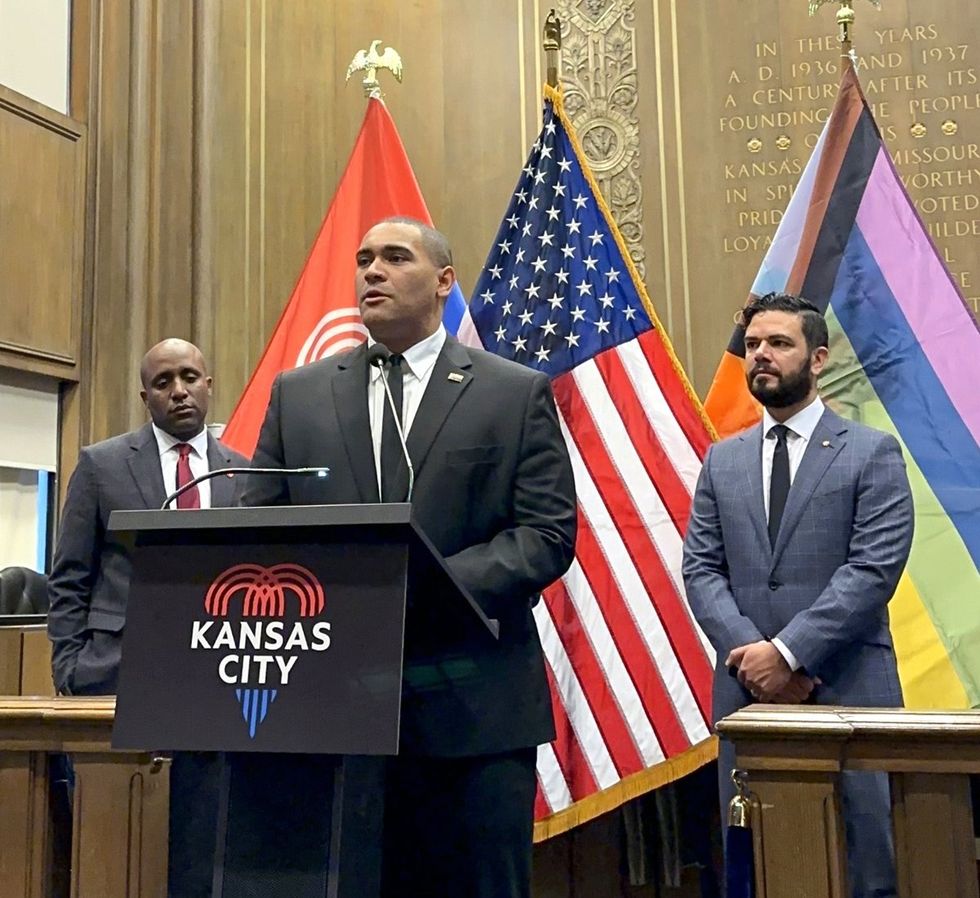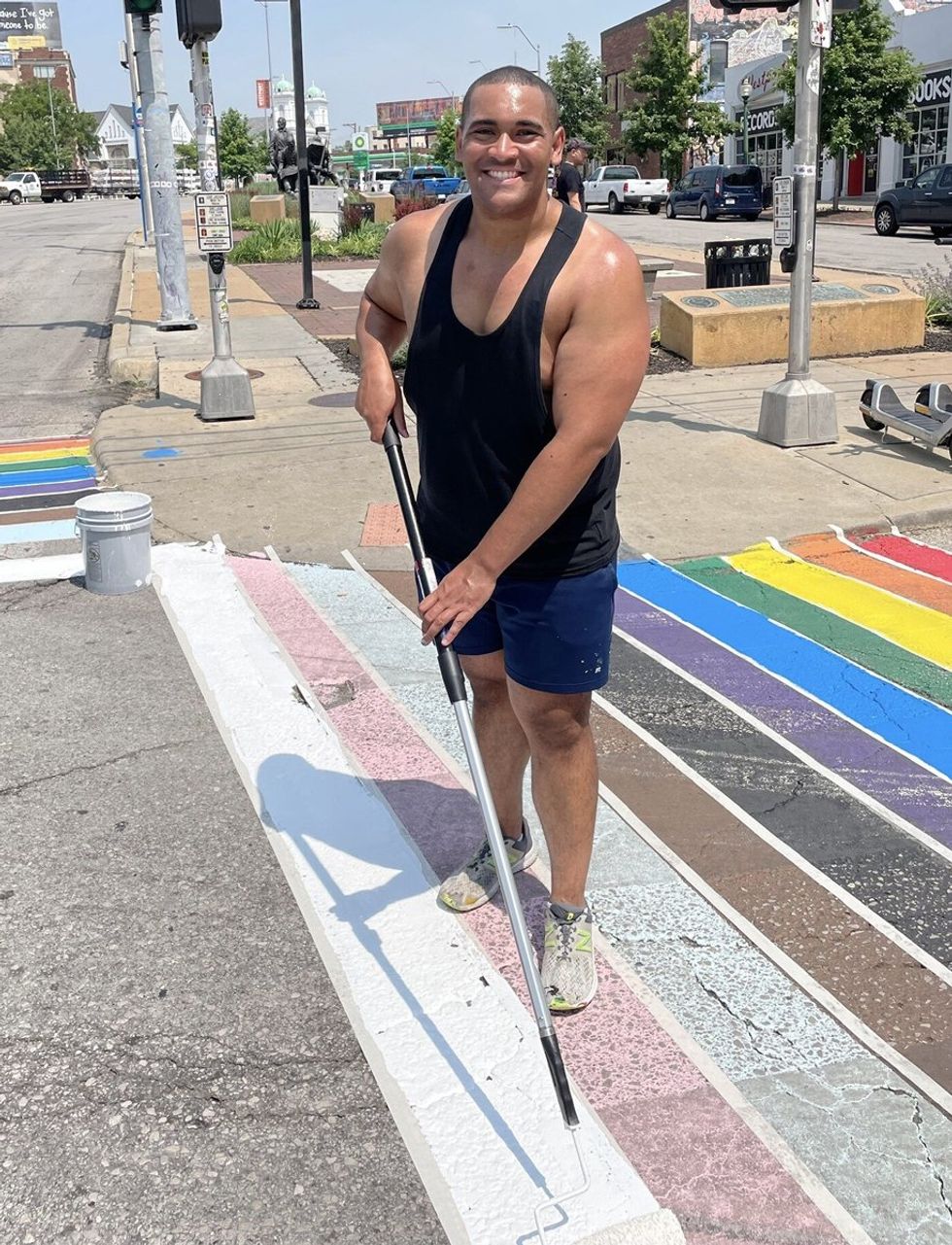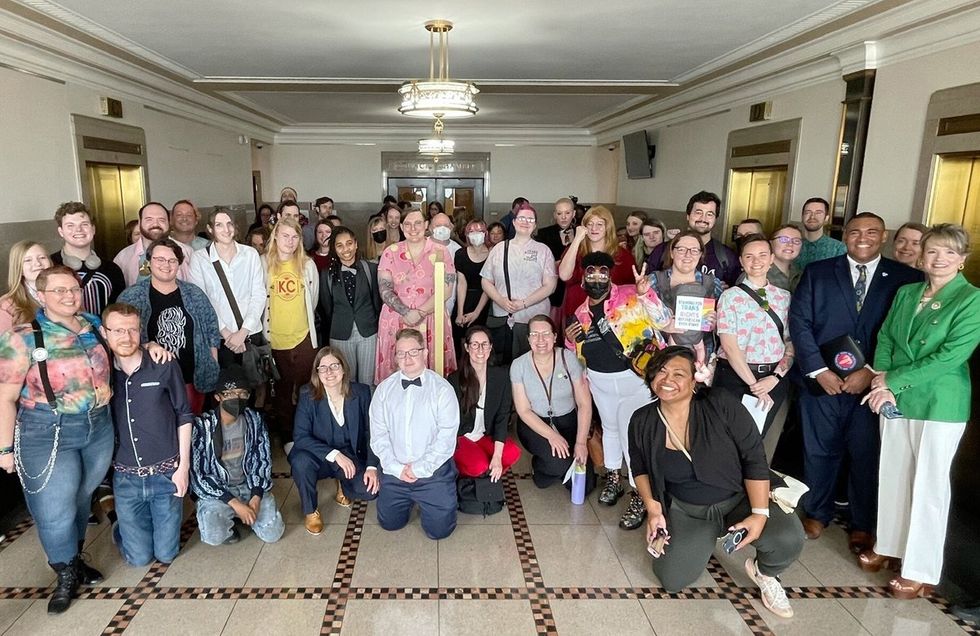Justice Horn, the gay Missouri man responsible for making Kansas City a sanctuary city, incorporating all-gender bathrooms at Kansas City International Airport, and pushing for stricter punishment for crimes against the LGBTQ+ community, announced on Sunday his resignation as the city's LGBTQ Commission chair. In an exclusive interview with The Advocate, Horn revealed why he stepped down and what he's planning next.
Keep up with the latest in LGBTQ+ news and politics. Sign up for The Advocate's email newsletter.
Horn’s resignation from the Kansas City LGBTQ Commission took many by surprise. A social media post accompanied the news.
“After much thought, I’ve made the decision to move on from my role as a city commissioner and no longer call Kansas City home. I am more committed to this fight than ever before, but I want to fight the good fight in my hometown. Thank you so much for the great times and memories, Kansas City—You made this kid from Blue Springs feel like one of y’all,” Horn wrote on X, formerly Twitter.
The Kansas City LGBTQ Commission staff expressed their gratitude on their Facebook page, writing, “Words cannot comprehend how thankful we are for his service and leadership over the years. Thank you, Justice.”
Sitting in his garden, Horn explained that his decision to step down and leave Kansas City was deeply personal and a long time coming.
“I’ve been in this post since 2021. I’ve lived in Kansas City for four or five years. Most of my life has been out east in Independence, Blue Springs, and Green Valley. I’ve done what I could here as an activist. At some point, you look at life and decide whether you want to continue the same path or make a change,” he shared.
 Courtesy Justice Horn
Courtesy Justice Horn
Horn noted that some media coverage of his resignation made it seem like a much more dramatic exit.
“Even the local news in Kansas City were reading my statement or showing my picture like I had passed or something. I’m like, I literally moved like 15 minutes down the street. Blue Springs is not that far from Kansas City,” he said.
Roots and responsibilities
Horn, 25, explained that he reflected on where he wanted to be in life. That led him to decide it was time to move on.
“I asked myself if I saw myself continuing this work until I’m 30, and I realized it was time for a change. I want to continue my work and have more time for my life and roots in the communities I’m operating in,” he said.
Horn said his decision to leave Kansas City is not a retreat from activism but rather a shift in focus.
“I’m moving back to where my name is up at the high school, where my heart still belongs. I want to serve Eastern Jackson County, where there are no LGBTQ protections on the books, and work to enact the policies I believe in,” he said. “There are no conversion therapy bans. None of these city governments have ever thought of an LGBTQ commission or recognized Pride.”
In addition to his advocacy, Horn has been appointed by the county executive to the Jackson County Plan Commission, overseeing development plans and hearings for Eastern Jackson County.
 Courtesy Justice Horn
Courtesy Justice Horn
Reflecting on his time as the LGBTQ Commission Chair, Horn highlighted the significance of raising the Pride flag over Kansas City’s City Hall for the first time in history in 2021.
“It sent a signal to everyone driving through Kansas City that there is a world outside where you are seen and loved. It was a significant achievement and a domino that led to many others,” he said.
Balancing Advocacy with well-being
Horn also spoke about the importance of balancing activism with personal well-being.
“To do this work long-term, I need to take better care of my mental health and have places where I can find peace,” he said. “Living in Blue Springs, next to a conservation center, allows me to engage in activities like gardening that sustain me. Having moments where I can be in my yard and enjoy simple pleasures is important.”
He stressed the need to take time to regroup to avoid burnout, a common issue among activists.
“It’s about creating small slices of happiness amid the chaos and craziness of the world,” Horn said. “If I have to go out of my way to be engaged, it’s not like being in the middle of the storm. It gives you boundaries, and that’s important.”
Looking forward
Horn recently graduated from the University of Missouri-Kansas City with his first master’s degree and is already pursuing another.
“I just finished my MBA, and I’m now going back for an MPA,” Horn shared.
Regarding his future, Horn remains committed to advocacy.
“I will always be an activist, no matter where I am. If I came back to Kansas City in 10 years, I would still only be 35. It’s about sustaining this work so I can do it long term and ensuring that I’m in places that make me happy,” he said.
Horn said he hopes that others will return to their communities to create positive change.
“I hope a lot of people go back to their towns and communities to give back and make them great. That’s what life is about: failing, swinging at things, and moving the needle.”
 Courtesy Justice Horn
Courtesy Justice Horn


 Courtesy Justice Horn
Courtesy Justice Horn Courtesy Justice Horn
Courtesy Justice Horn Courtesy Justice Horn
Courtesy Justice Horn


































































Charlie Kirk DID say stoning gay people was the 'perfect law' — and these other heinous quotes